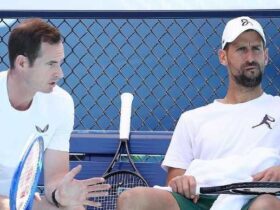Throughout tennis history, several players have overcome immense adversity to achieve greatness, such as Evonne Goolagong Cawley, who battled racial discrimination as an Indigenous Australian. However, for some, the challenges beyond the court cast a long shadow over their success, and that was the case for former world No. 4 Jelena Dokic. Despite a promising start to her career, her time at the top was brief, hindered by personal hardships.
Rising to prominence as a teenager, Dokic stunned the tennis world in 1999 when she defeated then-world No. 1 Martina Hingis in the first round of Wimbledon. She continued her ascent, reaching the semifinals of the tournament two years later.
By 2002, she had climbed to No. 4 in the WTA rankings, securing five WTA titles and deep runs at the Australian Open and French Open. However, her success was short-lived. At the peak of her career, Dokic faced immense pressure, both from the tennis world and from within her own home.
Her father, Damir Dokic, was notorious for his volatile behavior, which frequently made headlines. His outbursts and erratic conduct led to tensions with tennis officials, and in 2001, he influenced her decision to switch national allegiances from Australia to Yugoslavia.
“That was the worst decision. I would never have done that,” she told ESPN in 2017. Soon after the decision to switch, she left home and became estranged from her parents, before attempting a reconciliation in 2004. A year later, she played for Australia again, but during those years, she struggled with depression and suicidal thoughts.
Dokic’s story of abuse
Dokic has been candid about the alleged abuse she suffered at the hands of her father, revealing the harrowing reality behind her rise in tennis. She detailed the physical and emotional torment in her 2017 autobiography Unbreakable, shedding light on the struggles that shaped her life. “It was hard to enjoy it [tennis], and it was hard to sometimes be on the court because I was playing out of fear,” she told ESPN in 2017. “At the end of the day, I still loved tennis. I still love it today.”
Despite the public nature of her father’s actions, Dokic felt abandoned by the tennis community. “I certainly know a few people saw it, but at this stage, it is about moving forward and not blaming people,” she told ESPN. “There is a lot to be learned from my case so no other player has to go through this again.”
Dokic also blamed the family situation for hendering her career. “I certainly think that I could have been a better player. But winning Grand Slams and becoming No. 1? Maybe. I would undoubtedly have been a consistent top-5-to-10 player for many years,” she told ESPN in 2017.
Life after tennis: Healthy and happy
After retiring in 2014, Dokic turned her focus to sharing her story. Her autobiographywas met with widespread acclaim, and in 2023, she published ‘Fearless: Finding the Power to Thrive,’ which chronicled her journey through trauma, poverty, and survival.
Her story was also turned into a feature-length documentary, premiering in Australian cinemas in November 2024. The film received positive reviews, with The Guardian and The Sydney Morning Herald, both awarding it high praise.
Reflecting on her journey, she told We Are Tennis in 2024, “I’ve done a lot of things I never thought I would do. Even though I don’t have the trophies, the memories are there, which is the most important thing.”
Apart from being an author, Dokic is still connected to tennis as a commentator and analyst.











Leave a Reply